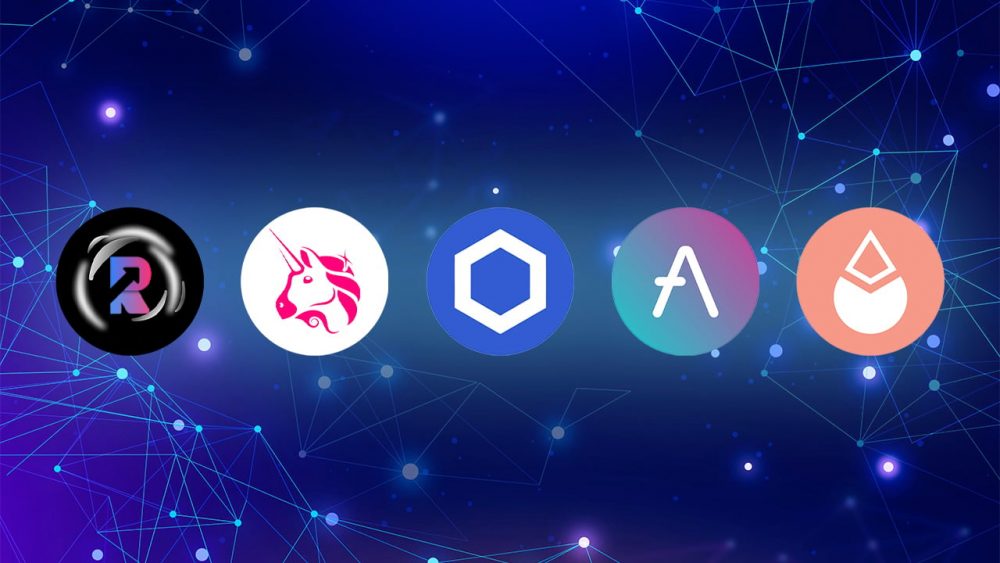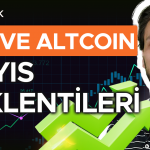DeFi coins are an important component of the crypto ecosystem, providing access to various DeFi protocols and platforms. DeFi is a movement that aims to decentralize financial services using cryptocurrencies and blockchain technology. There are many different cryptocurrencies in this space.
What is DeFi?
It would be more accurate to define DeFi as a concept rather than a project. With the popularization of MakerDAO (Decentralized Autonomous Organization) in early 2018, it is an emerging system. This concept, which was named under different names at first, was later named “DeFi” with the coming together of companies working on the decentralized Blockchain system. It was translated into Turkish as “Centralized Finance”.
Compared to traditional finance, DeFi increases the potential for returns by eliminating middlemen. In addition, people who have difficulties in accessing traditional financial services can easily benefit from these services through decentralized finance. Decentralized finance is largely autonomous, censorship resistant, and accessible to anyone with an internet connection. It is also transparent and can give you demonstrable ownership of your assets, in other words, the chance to “become your own bank”.
Best DeFi Coins
We have compiled the best DeFi coins for you according to their market values, popularity and overall performance.
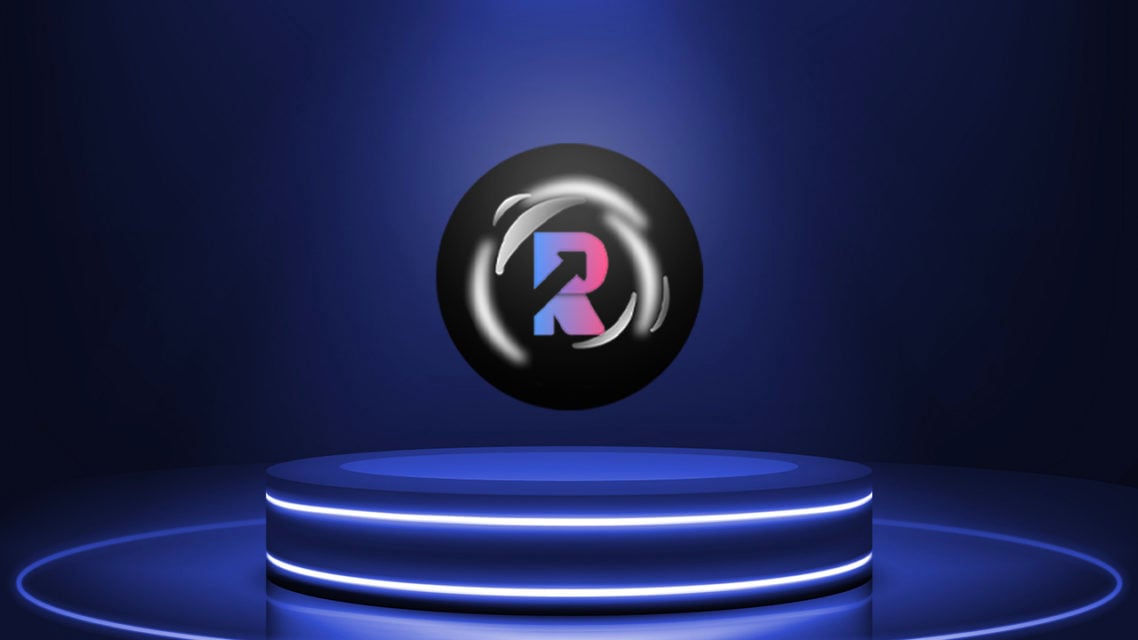
1. RenQ Finance (RENQ)
RenQ Finance (RENQ) is a DeFi platform that aims to revolutionize the traditional finance industry by providing a decentralized, transparent and secure alternative to financial services. It is built on the Ethereum blockchain and offers a range of DeFi services, including a decentralized exchange (DEX), liquidity pools, and staking.
Advantages
- Decentralized Exchange: RenQ Finance provides a decentralized exchange that allows customers to buy and sell various cryptocurrencies directly with each other. This eliminates the risk of hacking, theft or corruption that can occur on centralized exchanges.
- Liquidity Pools: RenQ Finance provides liquidity pools that allow users to lend and borrow cryptocurrencies without the need for a traditional financial intermediary. This provides users with the opportunity to earn interest on their cryptocurrency holdings.
- Staking: RenQ Finance allows users to stake RENQ tokens and earn interest in return. This increases the demand and value of the token by incentivizing users to hold RENQ tokens.
High Transaction Speeds: RenQ Finance is built on the Ethereum blockchain, offering fast and secure transaction speeds. This allows users to execute trades and transactions quickly and efficiently.
Disadvantages
- Regulatory Challenges: DeFi platforms, including RenQ Finance, are currently unregulated, which means they may face regulatory challenges in the future. This could potentially limit the growth and adoption of the platform.
- Smart Contract Vulnerability: RenQ Finance relies on smart contracts to execute transactions and trades. Smart contracts are vulnerable to bugs and security breaches that could potentially result in loss of user funds.
- Limited Adoption: RenQ Finance is a relatively new platform and thus has limited adoption compared to more established DeFi platforms. This could potentially limit liquidity and trading volume on the platform.
- Rivalry: RenQ Finance is entering a highly competitive market with many established DeFi platforms already offering similar services. This could potentially limit the growth and adoption of the platform.
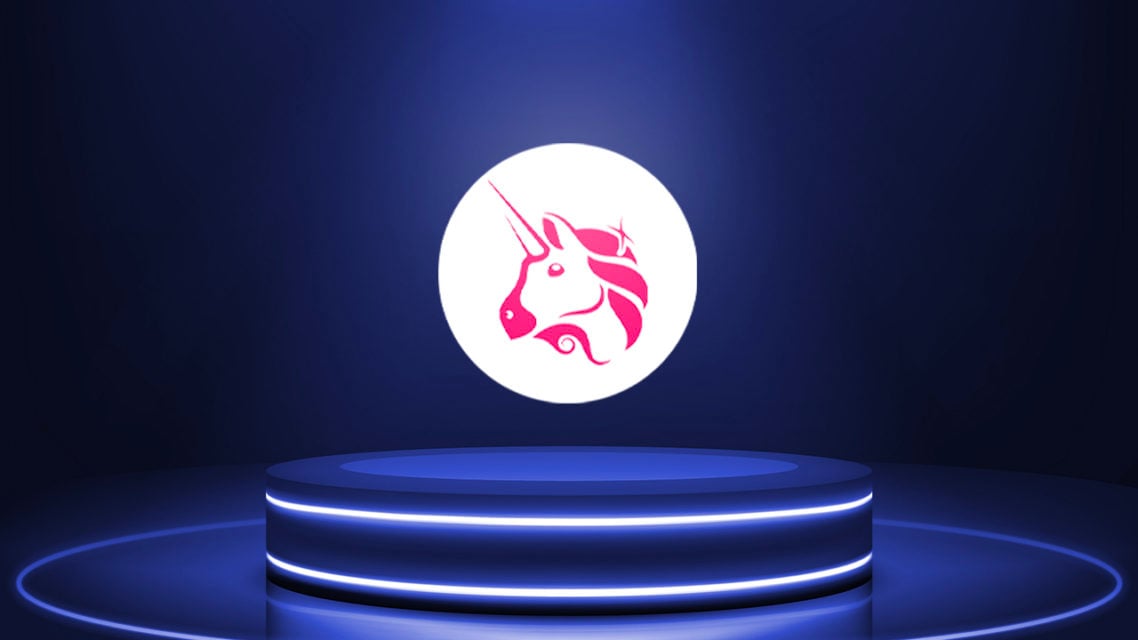
2. Uniswap (UNI)
It is a decentralized exchange that uses the Ethereum blockchain. It allows users to buy and sell ERC-20 tokens without the need for an intermediary. Uniswap uses an automated market maker (AMM) system that allows users to provide liquidity to the platform and earn fees in return.
UNI is the native cryptocurrency of the Uniswap platform and is used for governance and liquidity mining. It also has an important place among DeFi coins.
Advantages
- Uniswap is one of the most popular decentralized exchanges in the DeFi space.
- The platform is easy to use and offers a wide variety of ERC-20 tokens for trading.
- UNI holders have governance rights that allow them to vote on platform upgrades and changes.
Disadvantages
- Uniswap is built on the Ethereum blockchain, which means users can experience high transaction fees during times of network congestion.
- UNI holders may face regulatory challenges as decentralized exchanges come under scrutiny by regulatory agencies.
- The platform is vulnerable to front-running, where traders use their knowledge of pending trades to trade in front of others.
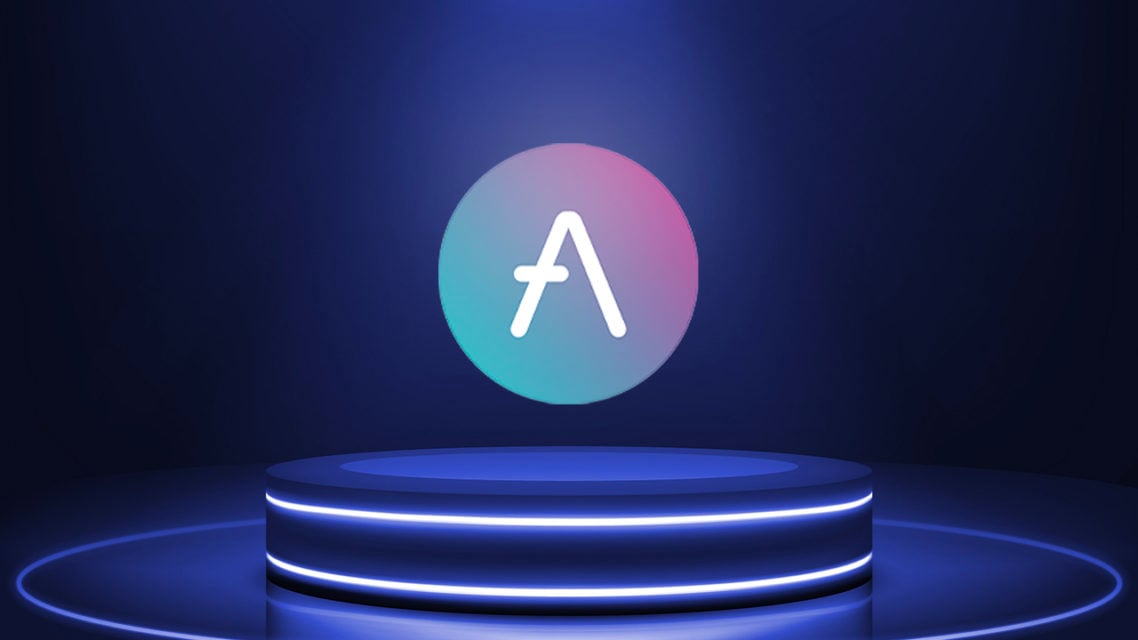
3. Aave (AAVE)
Users can lend and borrow money on the blockchain without the help of a traditional financial intermediary through the decentralized lending network Aave. AAVE is the native token of the Aave platform and is used for governance, staking and fee reduction.
Advantages
- Aave offers users a wide variety of cryptocurrencies to lend and borrow.
- Customers using the site can receive interest on their cryptocurrency investments.
- AAVE holders have governance rights that allow them to vote on platform upgrades and changes.
Disadvantages
- Aave is built on the Ethereum blockchain; This means that users may experience high transaction fees during times of network congestion.
- The platform is susceptible to flash credit attacks, where attackers take large unsecured loans and manipulate the market.
- Aave may face regulatory challenges as its decentralized lending platforms come under scrutiny by regulatory agencies.
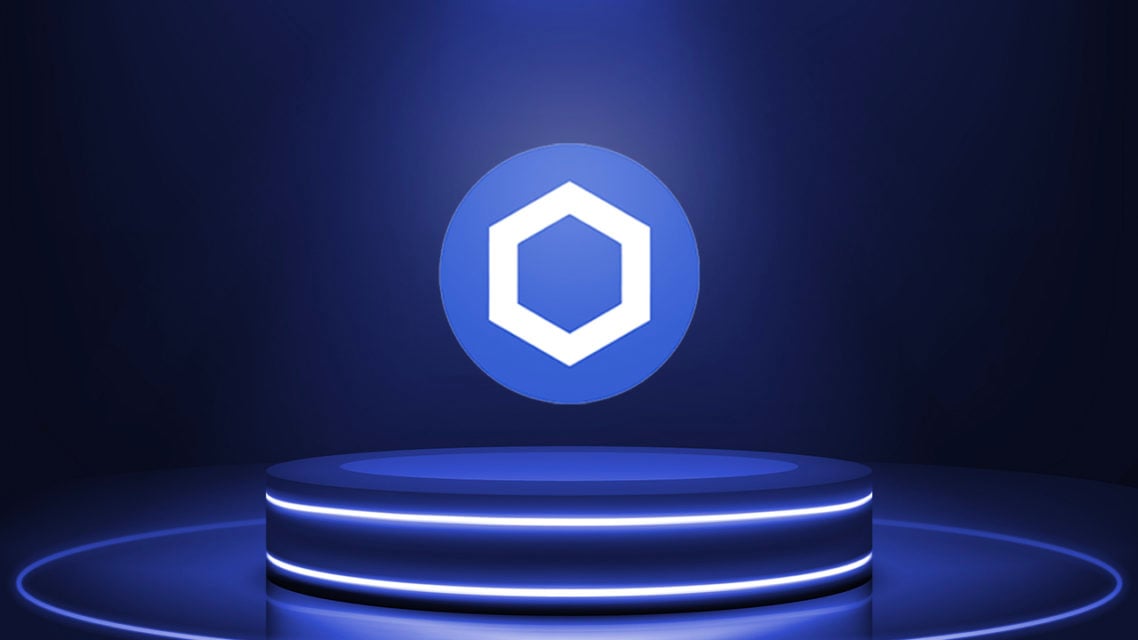
3. Chainlink (LINK)
Chainlink (LINK) is a decentralized oracle network that aims to provide secure and reliable data feed to smart contracts on various blockchain networks. The platform uses a network of decentralized nodes that provide data from a variety of sources, including APIs, IoT devices, and other blockchains, and securely transmit it to smart contracts.
Chainlink’s unique approach to providing real-world data to smart contracts has led to its widespread adoption in the DeFi industry.
Advantages
- Chainlink offers a decentralized Oracle network that enables smart contracts to securely access real-world data. This eliminates the need for centralized agents and ensures the reliability and security of data flows.
- Wide Adoption: Chainlink has been widely adopted by DeFi coins, with many leading DeFi protocols integrating Oracle services. This has resulted in increased demand for the LINK token used to pay for Oracle services on the Chainlink network.
- Safe and Reliable:Chainlink’s decentralized Oracle network provides secure and reliable data feeds to smart contracts, ensuring that they are executed based on accurate and reliable data.
- Customizable: Chainlink allows developers to create customized Oracle networks that can provide data from a variety of sources, including APIs, IoT devices, and other blockchains. This allows developers to create more complex and sophisticated smart contracts that can interact with the real world.
Disadvantages
- Centralization Risk:Although Chainlink is a decentralized network, there is a risk that large numbers of nodes are controlled by a single entity, potentially compromising the security and reliability of the network.
- Dependency on External Data: Chainlink’s Oracle network relies on external data sources that may be subject to manipulation or tampering. This could lead to potentially inaccurate or unreliable data being fed into smart contracts.
- Token Price Volatility:The value of the LINK token is subject to market volatility, which can be affected by various factors such as market sentiment, regulatory changes, and adoption of new DeFi protocols.
- Rivalry: Chainlink is facing increasing competition from other decentralized Oracle networks, including Band Protocol and API3. This could potentially limit its growth and adoption in the DeFi industry.
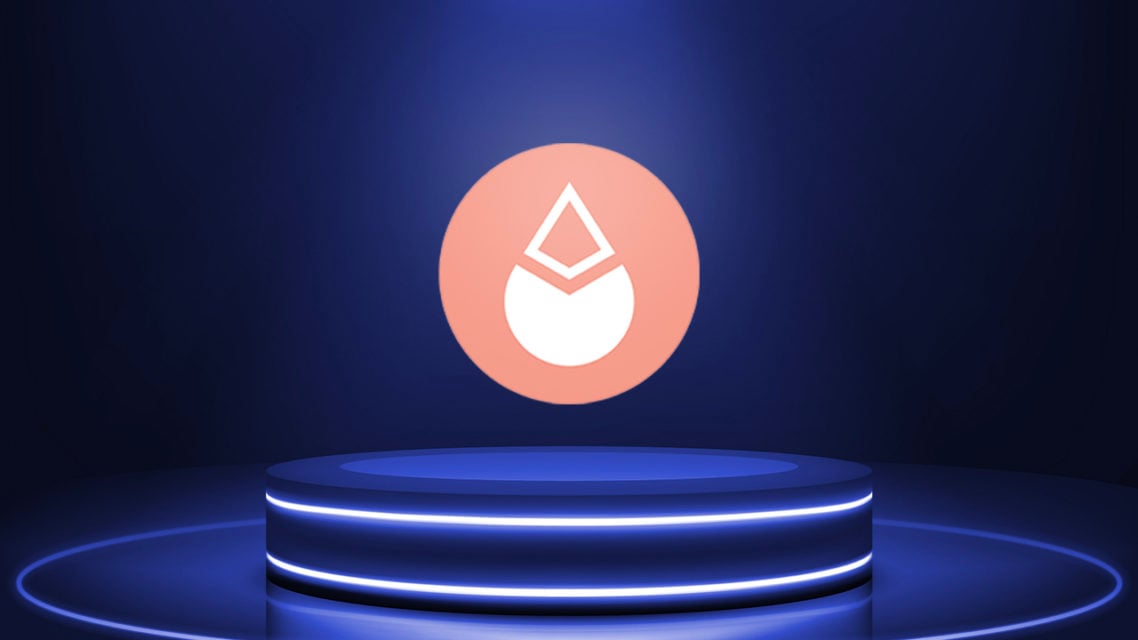
4. Lido DAO (LDO)
A staking option for Ethereum 2.0 is offered by the Lido DAO (LDO), a decentralized autonomous organization. The platform allows users to stake their Ethereum (ETH) assets on the Ethereum 2.0 network and earn rewards without having to maintain their node infrastructure.
Lido DAO aims to make staking more accessible to the wider crypto community and provides a secure and reliable way for users to participate in the network.
Advantages
- Simplified Staking: Lido DAO simplifies the staking process for Ethereum 2.0, making it more accessible to a wider range of users. Users can stake their ETH assets on the Ethereum 2.0 network and earn rewards without having to maintain their node infrastructure.
- High Rewards: Lido DAO provides users with high rewards for staking their ETH holdings. This encourages users to join the network and helps secure the Ethereum 2.0 network.
- Decentralized: Lido DAO is a decentralized organization managed by the user community. This ensures that the platform remains transparent, secure and reliable.
- Strong Community: Lido DAO has a strong and growing user community committed to the platform’s success. This community provides support, feedback and guidance to the Lido team, helping to improve the platform over time.
Disadvantages
- Risk of Smart Contract Vulnerabilities: Lido DAO relies on smart contracts to work, and these contracts are vulnerable to bugs and security breaches. In the event of a security breach, user funds may be at risk.
- Dependency on Ethereum 2.0: Lido DAO depends on the success and security of the Ethereum 2.0 network. Any network-related issue or vulnerability can potentially affect the performance and reliability of the Lido platform.
- High Gas Charges: Staking on the Ethereum 2.0 network can be expensive due to high gas fees. This can make it harder for smaller investors to participate in staking on the network.
- Rivalry: Lido DAO is facing increasing competition from other staking solutions, including centralized exchanges and other DeFi protocols. This could potentially limit its growth and adoption over time.

